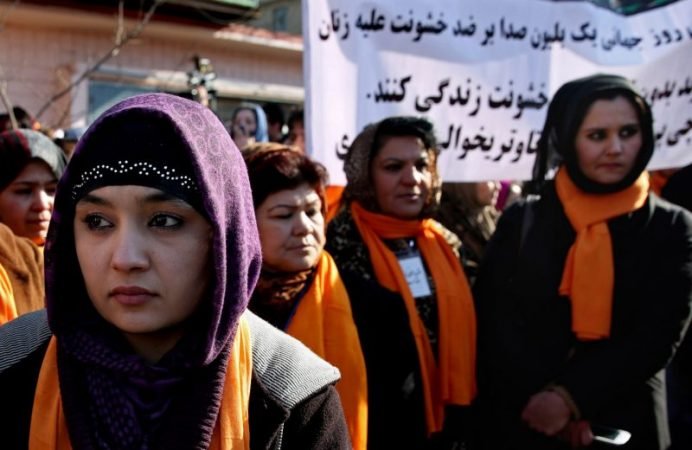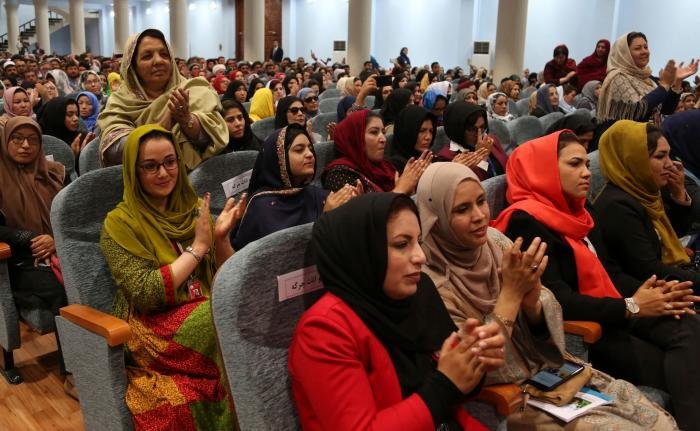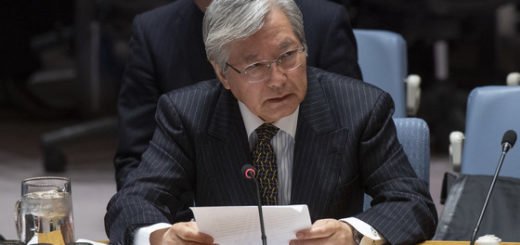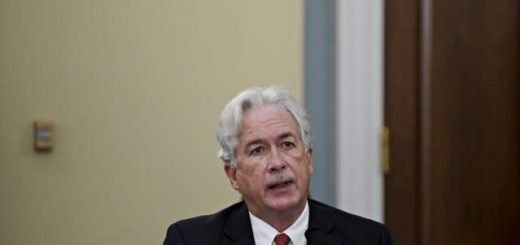The fate of women in Afghanistan post US troops withdrawal

As the US withdraws its troops from Afghanistan one of the main concerns that have been voiced internationally as well as from within Afghanistan is about the rights of minorities and women. The deal that the United States signed with the Taliban in Doha on February 29, 2020, leaves the future of Afghan women completely up to the outcomes of the intra-Taliban negotiations and battlefield developments. In exchange for the withdrawal of its forces by summer 2021, the United States only received assurances from the Taliban that the militants would not attack U.S. and its allies’ targets, conduct terrorist attacks against U.S. and allies’ assets, or allow the territory under Taliban control to be used for such terrorist attacks. How Afghanistan and its political order is redesigned is left fully up to the negotiations between the Taliban and the Afghan government and other Afghan politicians, powerbrokers, and hopefully representatives of Afghan civil society.
Coming of a genuine Islamic system: Women’s conditions
Now, as the Taliban recently touted “a genuine Islamic system” as the best way to end the war in Afghanistan and ensure rights, including for women concerns are rising that the militant group will roll back 20 years of progress on women’s rights. Though the militant organisation has talked about giving rights to women and the minorities the past experiences of women in the Islamic Emirate of Afghanistan when the society was governed based on totalitarianism through a strict interpretation of Islamic Sharia Law, that included barring girls from school and women from working outside their homes and prohibiting them from being in public without a male relative.
These thoughts come as a nightmare to women in Afghanistan, as they have made progress over the past two decades in terms of gaining access to education, jobs, politics and society in general. This includes human rights and constitutional advances, such as a female quota of 25% of seats in parliament and freedom of religion.
Since the official announcement of the pullout of the US forces as the Taliban has increased its hold in Kabul violence on the battlefield has only intensified as the Taliban relentlessly and steadily pound Afghan forces.

Women in Political Arena
The Afghan government has appointed a 21-member negotiating team that includes five Afghan women. Afghanistan’s president, Ashraf Ghani, also established the High Council for National Reconciliation, a higher supervisory body to monitor and direct the negotiating team. Out of 46 appointed members, only nine are women, while former warlords and older male powerbrokers dominate the list which as the head of the High Council—Afghan commentators interpreted it widely as marginalizing Afghan women and only giving them representation “in reserved seats,” and “reflecting a 2001 Afghanistan power structure” exclusively dominated by warlords and tribal elders.
On the other hand, the Taliban’s negotiating team contains no women at all. Both Western observers and Afghan civil society representatives have repeatedly highlighted the absence of women’s representation in the Taliban’s governing structures, political offices, and the negotiating team— and raised the issue with the Taliban.
Other Minorities
This sword of danger doesn’t only hover over the rights of women but also the minority community such as the Hazaras have long faced discrimination and persecution in Afghanistan, and a renewed fear grips Farkhondeh’s increasingly victimized and beleaguered community. Hazaras constitute the country’s third-largest ethnic group and largest religious minority community due to their Shia Muslim faith in this Sunni majority country. Their different beliefs and Asiatic features have made them easy targets.
Apart from them, other religious minorities such as the Hindus and the Sikhs have faced persecution since the 1970s and their plight has only increased over the years. Though we cannot say that they haven’t faced difficulties over since the US invasion but now with the coming of the Taliban to power their future seems bleaker.


















